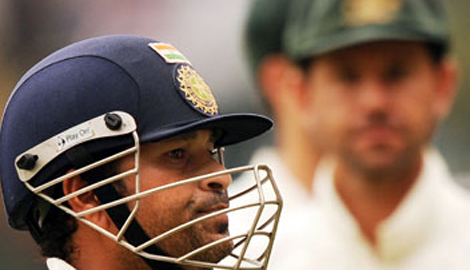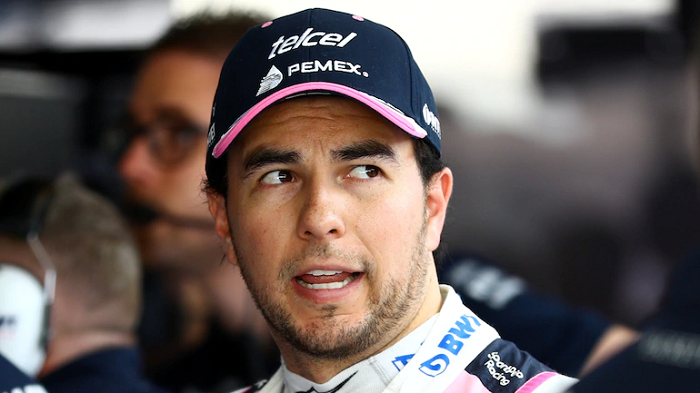
I'm no statistician. On the contrary, I go cross-eyed, my head spins like a top and I'm overcome by panic each time I'm confronted with a page peppered generously with numbers. This unfortunate phenomenon has everything to do with my rocky and ill-fated relationship with arithmetic since my teens. But every once in a while, even with the odds stacked against me, I'm compelled to flirt with numbers. So here goes.
90,284 balls faced in international cricket. 61,070 runs in Tests and one-dayers. 14,924 days worth of international cricket experience. 1198 Test matches and one-day games over 23 years. 171 centuries. That's the combined mind-boggling, emotionally overwhelming and awe-inspiring worth of Sachin Tendulkar and Ricky Ponting. And the numbers are just part of a story that is still being scripted. (Also read: Test rankings - India's best batsman is 18th best)
Any discussion on batting greats and consummate batsmanship of the modern era will perforce involve Tendulkar and Ponting, by sheer dint of their skill, talent, class and prolificacy. As dissimilar as they are in style and approach, those names, Tendulkar and Ponting, will frequently be uttered in the same breath. But I digress. My interest as far as this piece is concerned is to look beyond the runs and records, and focus instead on how their portrayals and perceptions have evolved in each other's countries, in the media and among the cricket-loving public, since they began their tryst with cricketing fame.
His predecessor was easily the most respected and adored overseas cricketer in India but unlike Steve Waugh, there was no love lost for the man who was to become Australia's most successful captain. Ponting was neither an Indophile nor a philanthropist. What began with a much-publicised brawl in a Kolkata nightclub on his second tour of India in 1998 was followed by many such episodes of so-called boorish behaviour – ignoring fans in a Chennai hotel lobby, spouting expletives at a concerned Javagal Srinath enquiring innocently after him, shunting then BCCI president Sharad Pawar off stage during the 2006 Champions Trophy post-match presentation and the most damaging among them all: Monkeygate.
In India, for a large part of his 17-year career, Ponting was unwittingly the face of the 'Ugly Australian'. And the late Peter Roebuck's scathing indictment of his leadership during the Sydney Test in 2008, where he called for the captain's sacking and branded the Australian team a 'pack of wild dogs', was just the fodder the Indian media and an incensed cricket-loving nation needed in the aftermath of a controversial game that did not go India's way. Ponting was skewered on national television and across newsprint. And there was even more reason to attack him when an Australian paper, and one as reputed as the Sydney Morning Herald, was openly doing the same.
Contrary to this arrogant and loutish reputation that preceded Ponting in India, I always found him thoroughly polite and professional over the eight-odd years I interacted with him. I'll go so far as to say he was a welcome contrast to several Indian cricketers, who love throwing their weight around even if they've scored just 13 of Ponting's 13,378 Test runs.
Ponting was most apologetic after the Sydney Test when he could not do his scheduled interview with me because Cricket Australia intervened and decided it was in the team's best interest if the captain lay low for a few days given how vitiated and charged the atmosphere was at the time. He more than made up for his disappearance in Sydney with a very forthright interview before the next Test in Perth on how tough it was for him as a leader to cope with the drama, the accusations and the crucifixion. Later in the year, when Australia lost the Test series in India 2-0, he was honest enough to admit his team was returning home "with their tail between their legs".
So it's refreshing, and a touch amusing, after years of biting criticism directed at Ponting, to see this outpouring of positive emotion by way of verbose pieces, televised eulogies and twitter tributes among fans and the media in the country now that he has bid cricket goodbye. It is ironic to read and hear the suggestions in the Indian media of how Tendulkar should take a cue from Ponting on timing his retirement. Contrast this with Tendulkar's declining reputation in Australia, and it makes for a fascinating study. From 'boy-God' and 'cricket's saint' to 'sore liar' and 'bad sport', the Tendulkar name has been tarnished.
It is hard to fathom that a sports-obsessed nation so enamoured by the batting prodigy ever since Don Bradman declared in a television interview, "This fella is playing much the same as I used to play", has now fallen out of love with him. They respected VVS Laxman's talent and Rahul Dravid's grit, but they loved Tendulkar like their own. One of my most abiding and treasured cricketing memories involves India's 2007-08 tour of Australia: Tendulkar got a standing ovation at every ground he walked on to. Most Australians were distraught at the possibility that they may never get to watch him bat in Australia again.
All of this changed with the Monkeygate scandal, where it was perceived he had lied under oath to protect Harbhajan Singh, his teammate and friend. This view gained currency when Adam Gilchrist's book, True Colours, branded Tendulkar a 'poor sport' for his role in defending Harbhajan, as well as his unsporting behaviour whenever India suffered humiliating losses. Gilchrist was quick to clarify that the quotes were taken out of context, but the damage was done.
Tendulkar's indifferent form in his last two Tests on Australian soil earlier this year, his deliberate evasion of the media through the two-month tour (perhaps to avoid the spotlight on his quest for the elusive 100th ton), India's wretched form through the Tests and one-day matches, and the negative sentiment around a feckless team as it fumbled through disastrous tours of England and Australia all probably contributed to Tendulkar falling out of favour with the Aussie folk.
Proof of this anti-Tendulkar attitude was on display with the crescendo of discontent that made its way to the newspapers and social media when Julia Gillard, the Australian Prime minister, declared that Tendulkar would be conferred with the Member of the Order of Australia award (AM) a couple of months ago.
The announcement was followed by an uproar on twitter, polls in Australian papers on whether he deserved the honour, and several critical pieces on a move by Gillard that was seen as "currying cheap favour" especially because Australian cricketing legends like Richie Benaud and Shane Warne had been overlooked. For a man who is worshipped, respected and loved immensely in almost every cricket-playing nation, Tendulkar will hope that the land of Bradman and several of his happy hunting grounds goes back to its first impressions rather than the final ones.






Comments
Add new comment